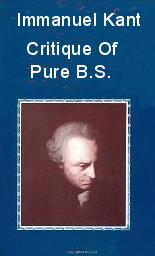
What do you get when you mix a pseudo-ethicist with a mainstream media pulpit? A law breaking cyclist who makes blind assertions about how breaking the law is “ethical.“
As a general rule, legitimate ethicists do not write fluffy articles in mainstream newspapers. They also avoid concluding that an action or desire is “ethical” on the basis that the person engaging in the action has a right to justify his or her behavior. Ethical arguments are developed from premises, which through the use of a rational thought process, engender valid conclusions.
The other day, a fluffy article masquerading as an ethical treatise appeared in the pages of The New York Times. After reading it several times, I still couldn’t determine, with apodictic certainty, whether it was intended to be serious or meant as tongue in cheek.
Although I was hoping that the latter was the case, due to the ridiculousness of the article’s arguments and the reference to laws and habits from other countries, I suspected that the former was true. Surely, no one would invoke the name of Immanuel Kant, to a general audience, unless they were trying to persuade people in the direction of their position.
This article starts out with the provocative sentences: “THE rule-breaking cyclist that people decry: that’s me. I routinely run red lights, and so do you.” From the outset, the author refuses to acknowledge the true nature of his actions by choosing to refer to his illegal activity as “rule-breaking,” even though he is breaking the law. Similar manipulations and defiant words can be found throughout the piece.
After the author sets the tone for the article, he moves on to justify his actions. In no time flat, we are treated to his belief that he has a right to break the law. He makes several main arguments to support this view.
First, is his insistence that the laws don’t apply to him because bicycles are different from cars. The fact that bicycles are defined as vehicles, with the same rights and obligations as cars, does not deter him from this perspective. Size and speed seem adequate to him for the purpose of redefining bicycles as something other than vehicles.
Second, is the argument about how it is OK to break the laws if others do it. In this case, he cites the example of pedestrians. They cross the street against red lights, so he can too. To make this argument, he overlooks the obvious point that bicycles are vehicles and pedestrians are not.
Third, he mentions the Idaho law which permits bicycles to treat stop signs and red lights as yield signs. Nowhere does he mention that New York has much more traffic than Idaho and a similar law would be more dangerous as a result.
Fourth, is his example of Amsterdam and Copenhagen where bikes are treated differently through the implementation of extensive protected bike lanes and lights timed for bicycles, not cars. In his mind, protecting cyclists makes bikes a “third thing,” i.e. neither a car nor a pedestrian.
These are all common excuses used by law-breaking cyclists. But what separates this article from most others is the author’s reliance on “ethics” to formalize this thinking into a justifiable system.
His claims about how this behavior is ethical stem from a number of disjointed sentences stating that this or that is “ethical,” without any proof of how or why these things are ethical. To make it sound official, he claims that his ethical argument “pass[es] the test of Kant’s categorical imperative: I think all cyclists could — and should — ride like me.”
Either he has no understanding of Kant or he thinks that his readers won’t know the difference. By “thinking” that all cyclists should ride like him, he is violating the categorical imperative, not passing it. In Kant’s view, humans should never be treated as a means to an end. Yet, that is exactly what the author is doing here.
He is using other cyclists by encouraging them to break the law with him, so that he can continue what he has been doing — while claiming it is ethical. In other words, the cyclists are the means to an end. By manipulating their actions, he can get what he wants for himself. But he hasn’t proven how such actions would benefit other cyclists, let alone drivers and pedestrians.
Contrary to what the author claims, ethics is not just about how our actions affect others; it’s also about whether something is right or wrong. To be ethical, on Kant’s terms, it must pass the test of being a universal law. However, it cannot be a universal law because it benefits cyclists at the expense of other road users who are obligated to obey the law.
Further, Kant would recognize and uphold the law of intersections which says that when a light is red, all traffic heading in that direction must stop. This is always true because the law of intersections is necessary to maintain order on public roads, and as such, benefits not only road users, but society at large.
Disobeying traffic laws is never legal or ethical whether traveling by car, bicycle or foot. Traffic laws exist to promote the greater good. Breaking them is done for personal gain. And asserting that these actions hurt no one is shallow and disingenuous. Likewise, invoking the names of famous philosophers will never change these facts, although it may fool some people into believing that their rule-breaking ways are acceptable.



